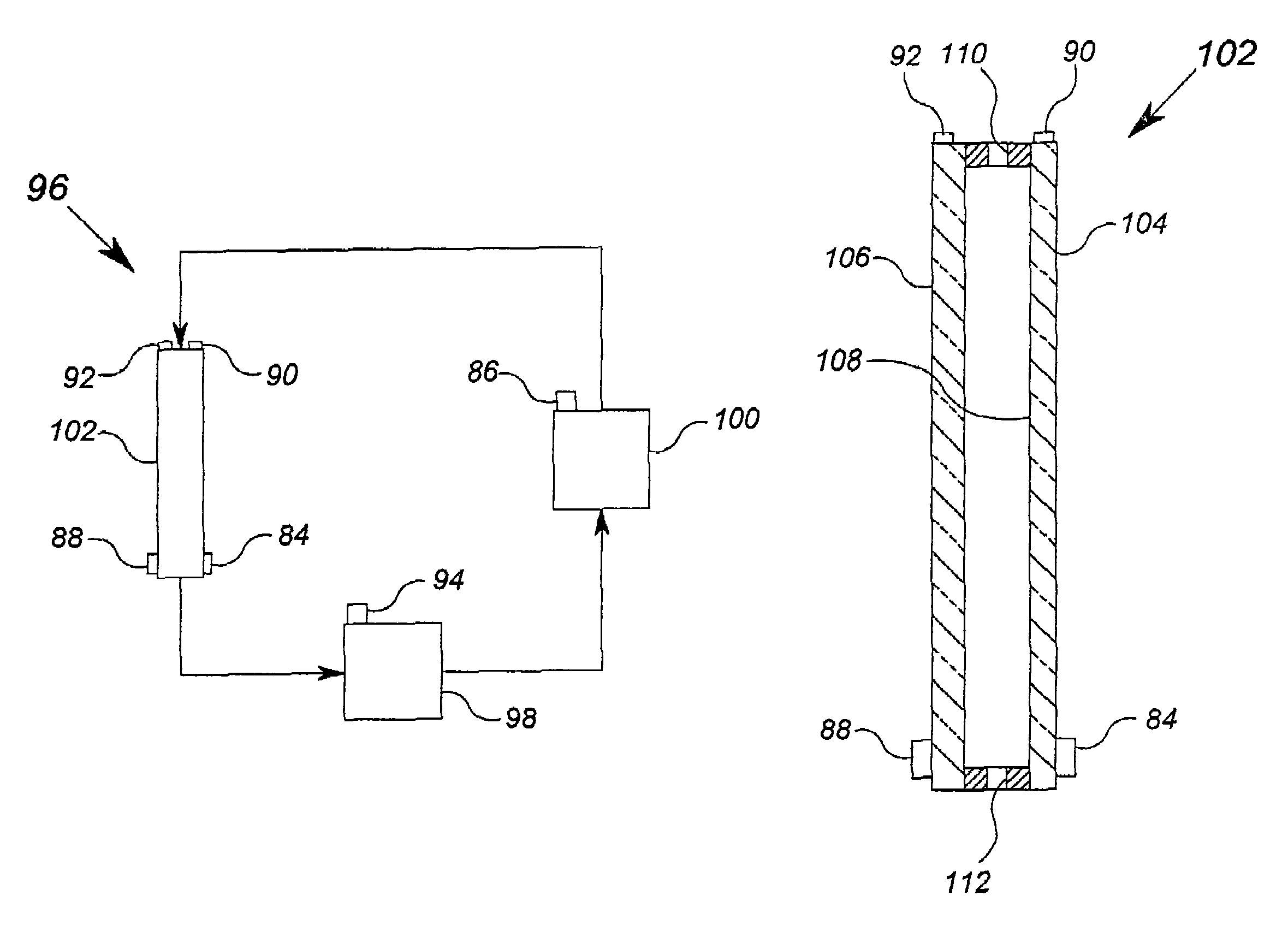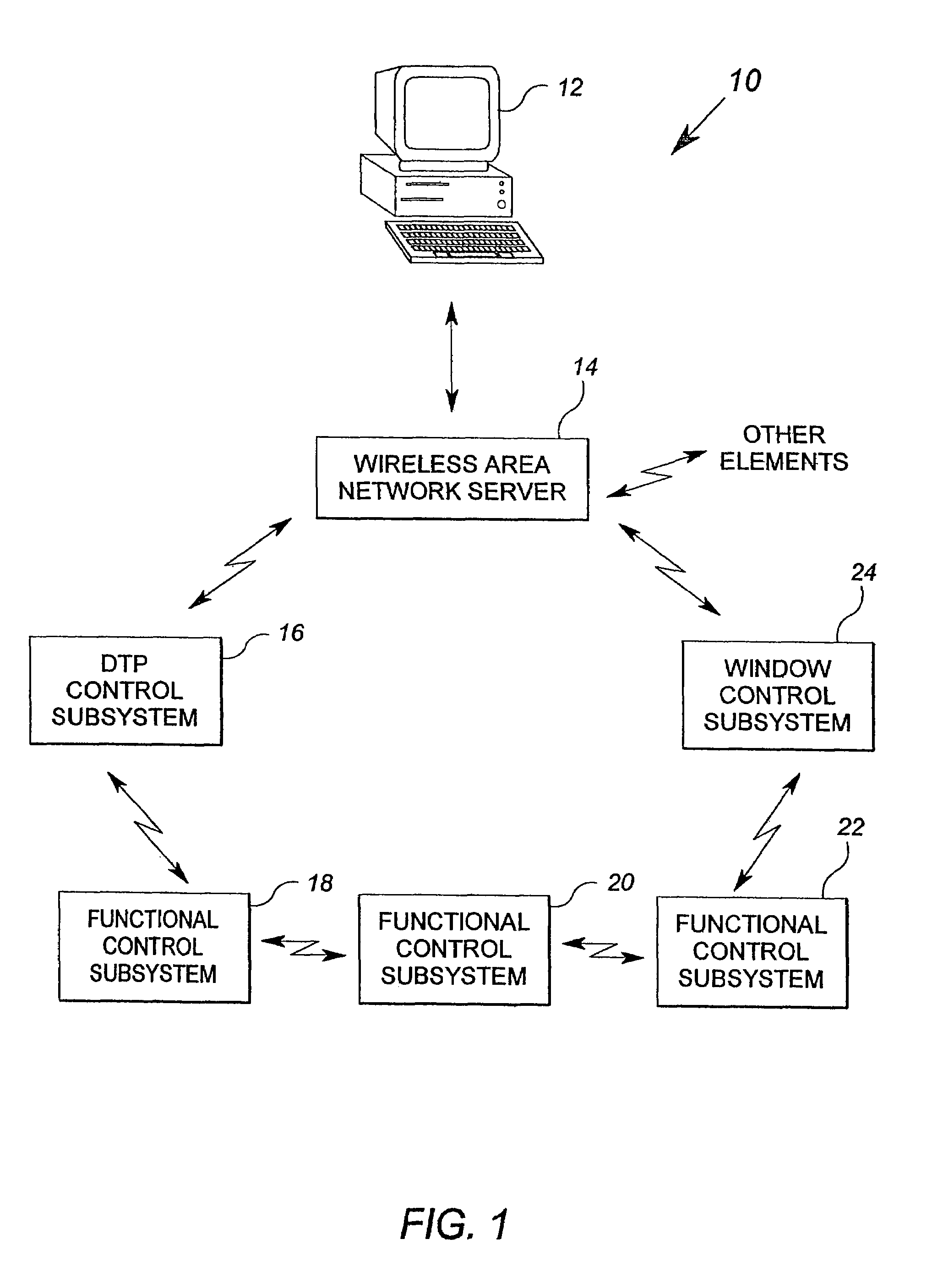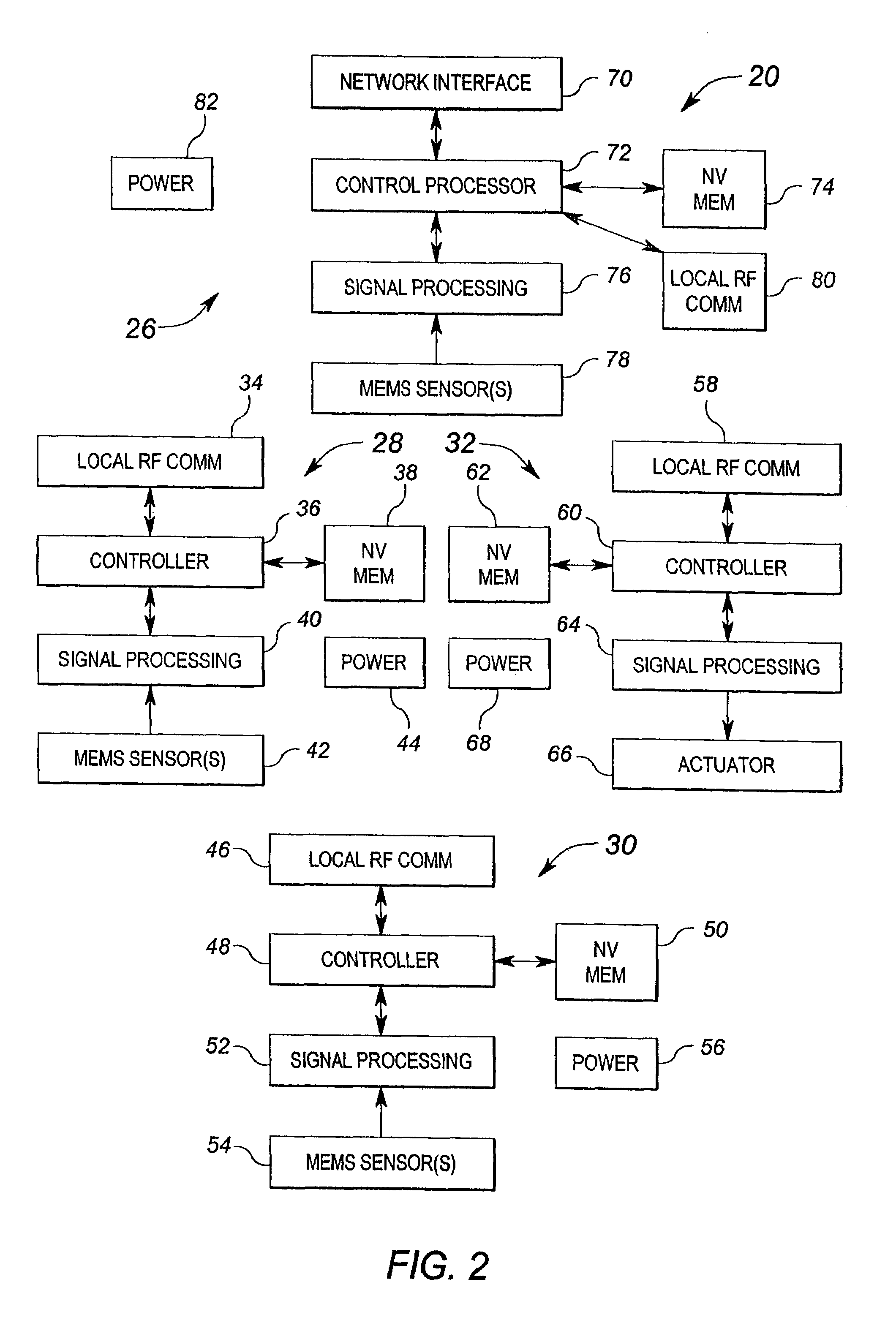Method and apparatus for controlling building component characteristics
a technology of building components and characteristics, applied in the field of control systems, can solve the problems of reduced undesired temperature variations, and reduce efficiency, additional material cost, and additional space requirements for a given hvac system
- Summary
- Abstract
- Description
- Claims
- Application Information
AI Technical Summary
Benefits of technology
Problems solved by technology
Method used
Image
Examples
Embodiment Construction
[0038]FIG. 1 shows a block diagram of an exemplary building control system in accordance with the present invention. The building control system 10 includes a supervisory computer 12, a wireless area network (WAN) server 14, a distributed thermal plant (DTP) control subsystem 16, three functional control subsystems 18, 20 and 22, and a window control subsystem 24. The building control system 10 includes only the few above-mentioned elements for clarity of exposition of the principles of the invention. Typically, many more functional control subsystems, as well as many more window, thermal plant, and other building HVAC subsystems, will be included into a building control network. Those of ordinary skill in the art may readily incorporate the methods and features of the invention described herein into control systems of larger or smaller scale.
[0039]In general, the building control system 10 employs a first wireless communication scheme to effect communications between the supervisor...
PUM
| Property | Measurement | Unit |
|---|---|---|
| temperature | aaaaa | aaaaa |
| temperature | aaaaa | aaaaa |
| area | aaaaa | aaaaa |
Abstract
Description
Claims
Application Information
 Login to View More
Login to View More - R&D
- Intellectual Property
- Life Sciences
- Materials
- Tech Scout
- Unparalleled Data Quality
- Higher Quality Content
- 60% Fewer Hallucinations
Browse by: Latest US Patents, China's latest patents, Technical Efficacy Thesaurus, Application Domain, Technology Topic, Popular Technical Reports.
© 2025 PatSnap. All rights reserved.Legal|Privacy policy|Modern Slavery Act Transparency Statement|Sitemap|About US| Contact US: help@patsnap.com



